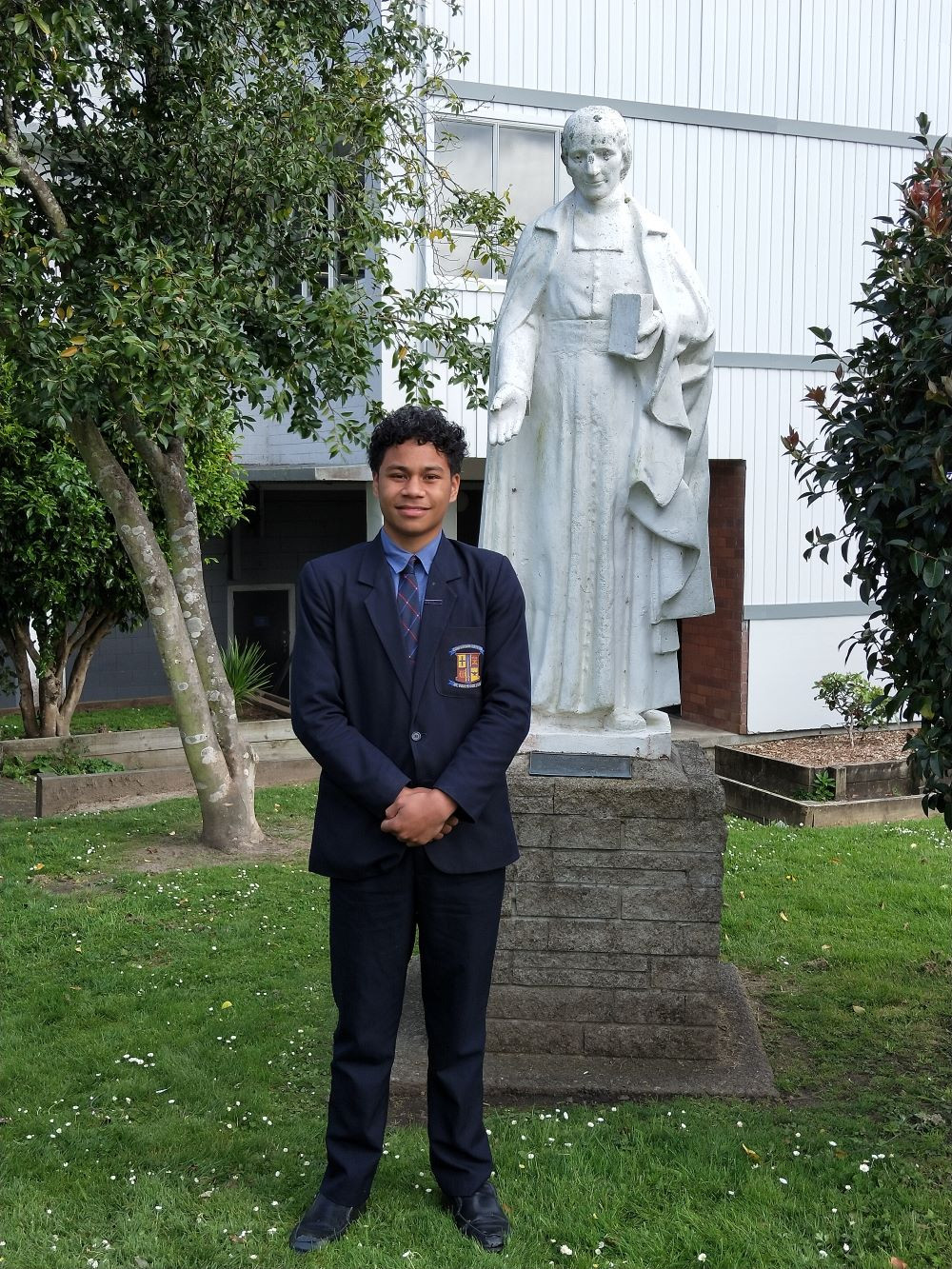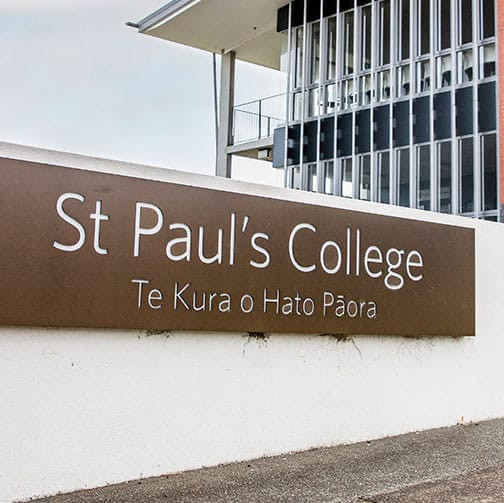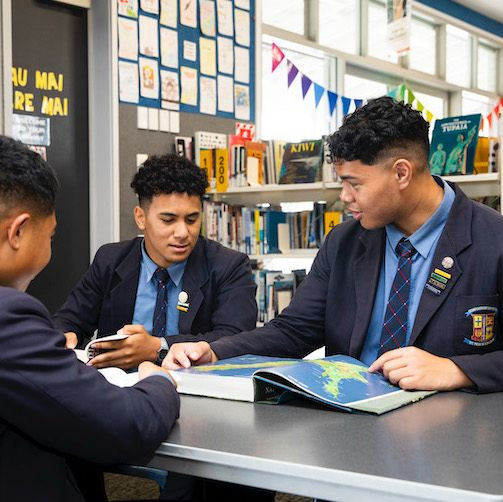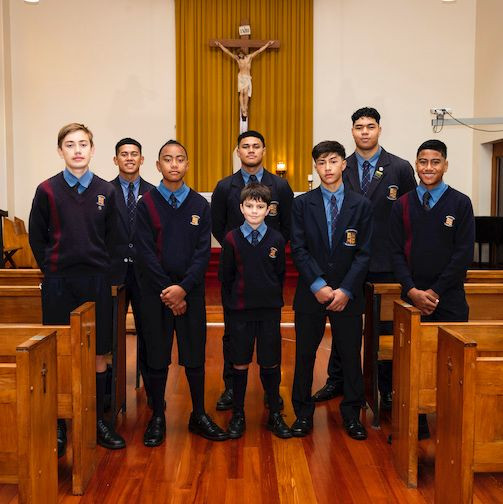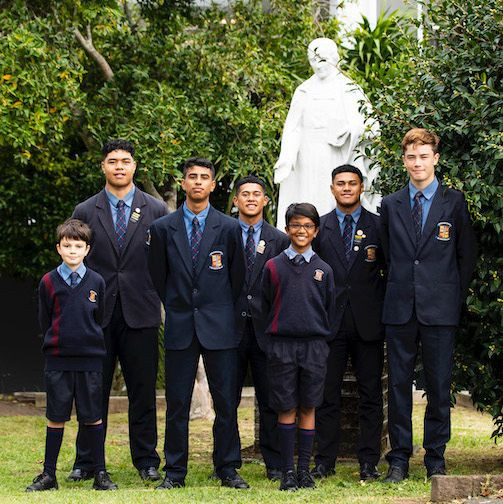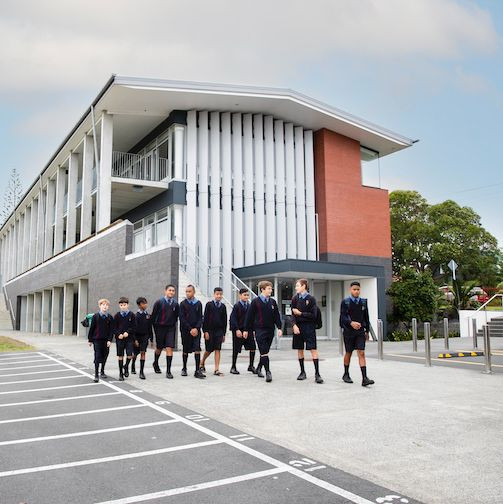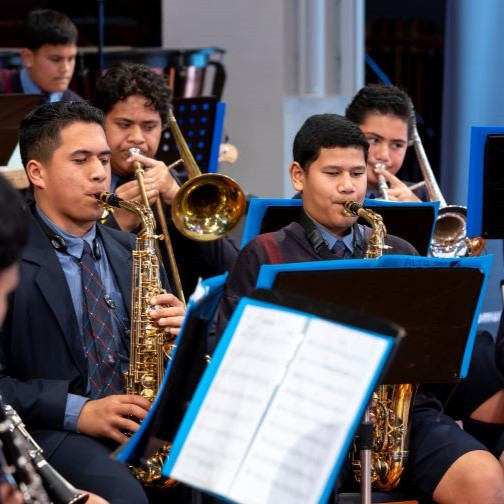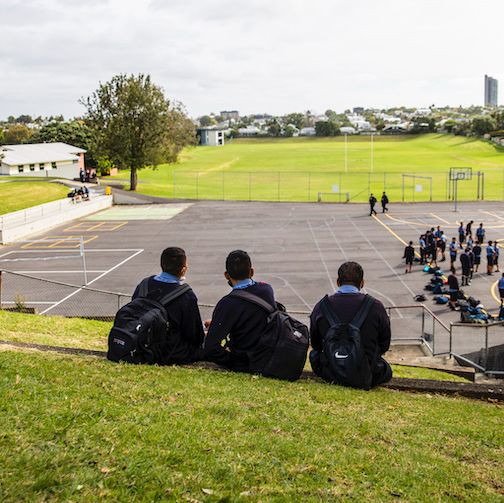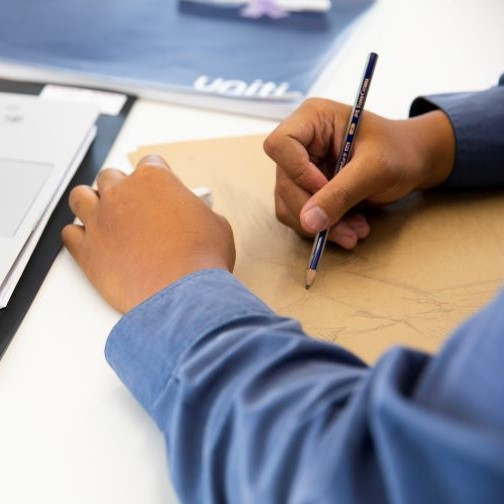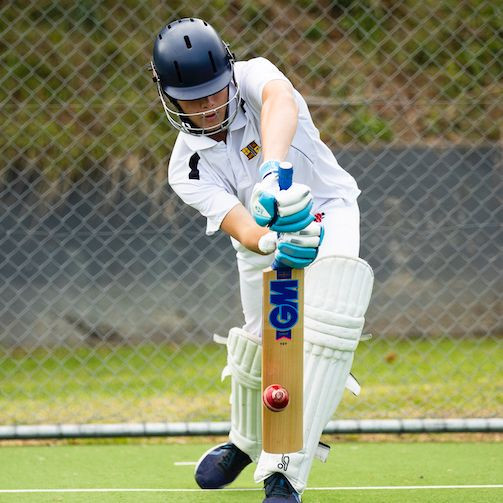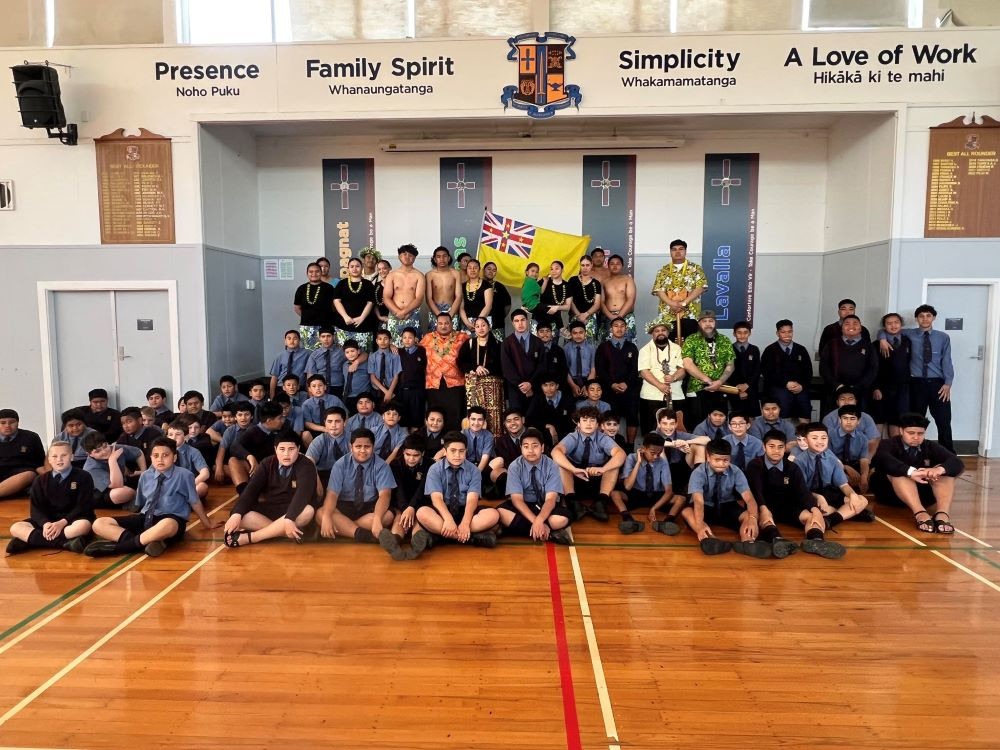Fijian Language Week
We have been busy this term celebrating our final Pacific language weeks; Fijian, Niuean and Tokelauan.
We started the term with Fijian Language Week with several activities including Fijian Bingo and Kahoot! quiz competitions. Senior students Rory Vetenibua and Ulaiasi Dakiragata organised an inter house Fijian touch tournament over two lunchtimes and our Fijian students led the Chapel Assembly. The school learnt phrases in assemblies and Meleti Vakadranu finished the week with a beautiful speech about his culture and why it is important to him. Vinaka vaka levu' to all involved.
Sa rui vinaka na Kalou! (God is Good!)
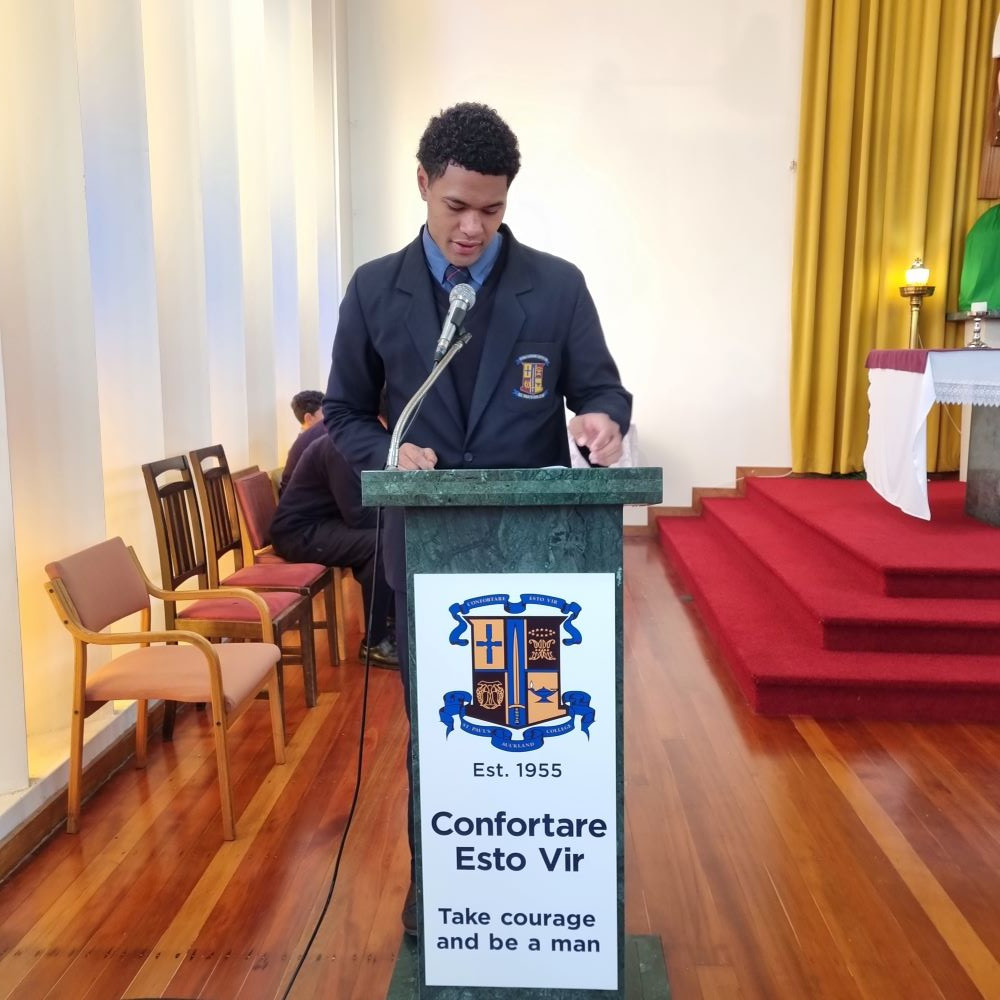 | 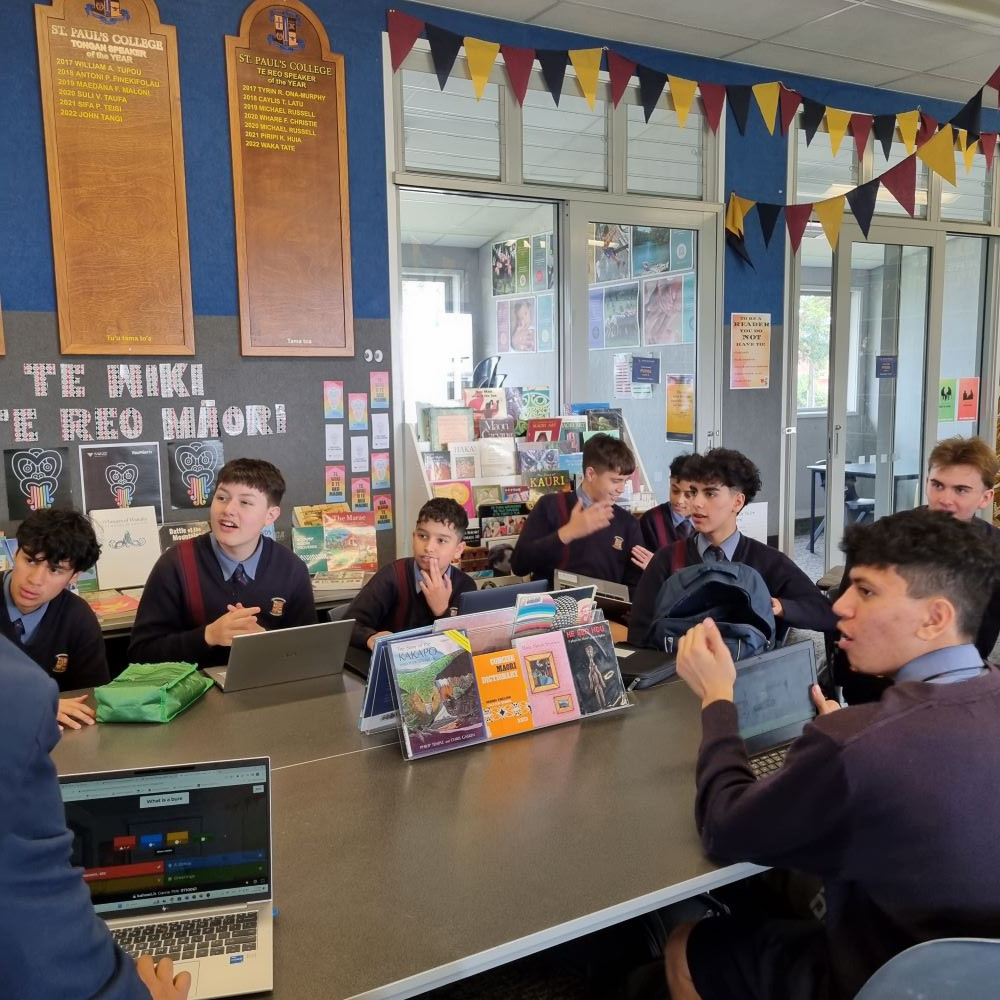 | 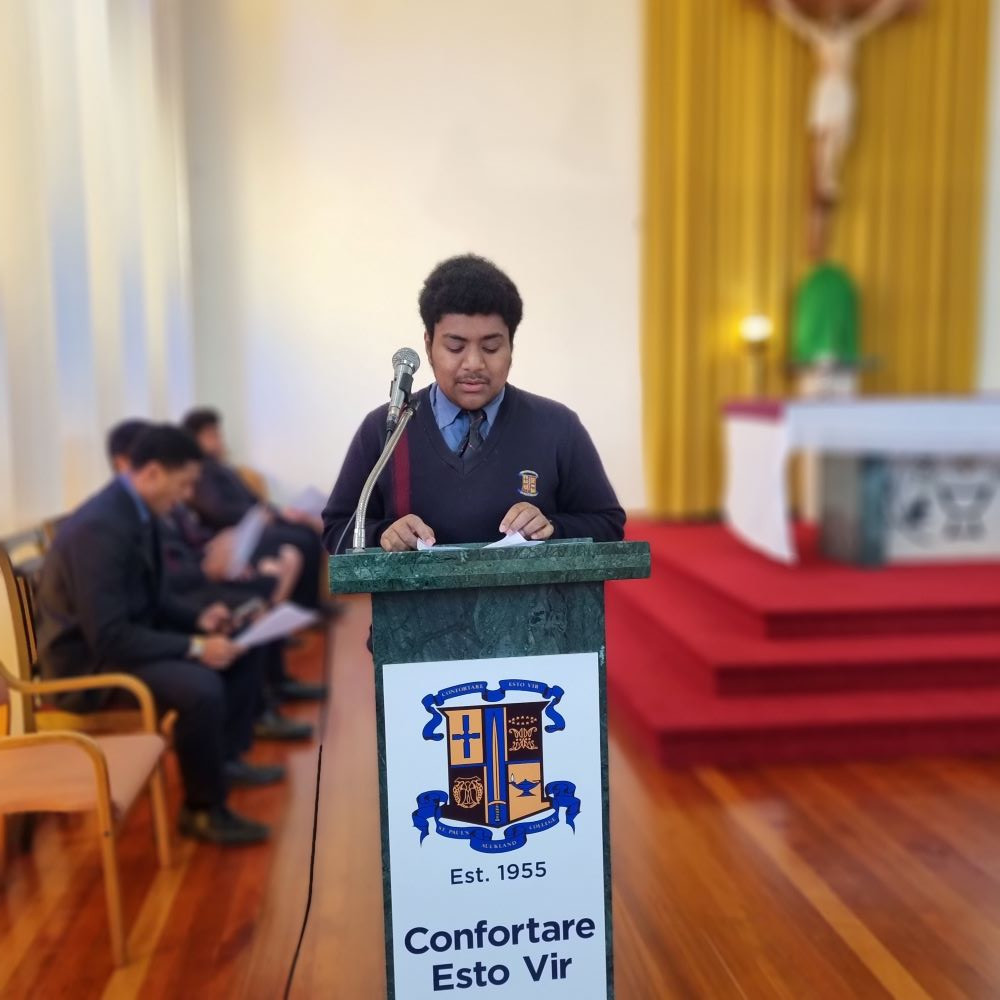 | 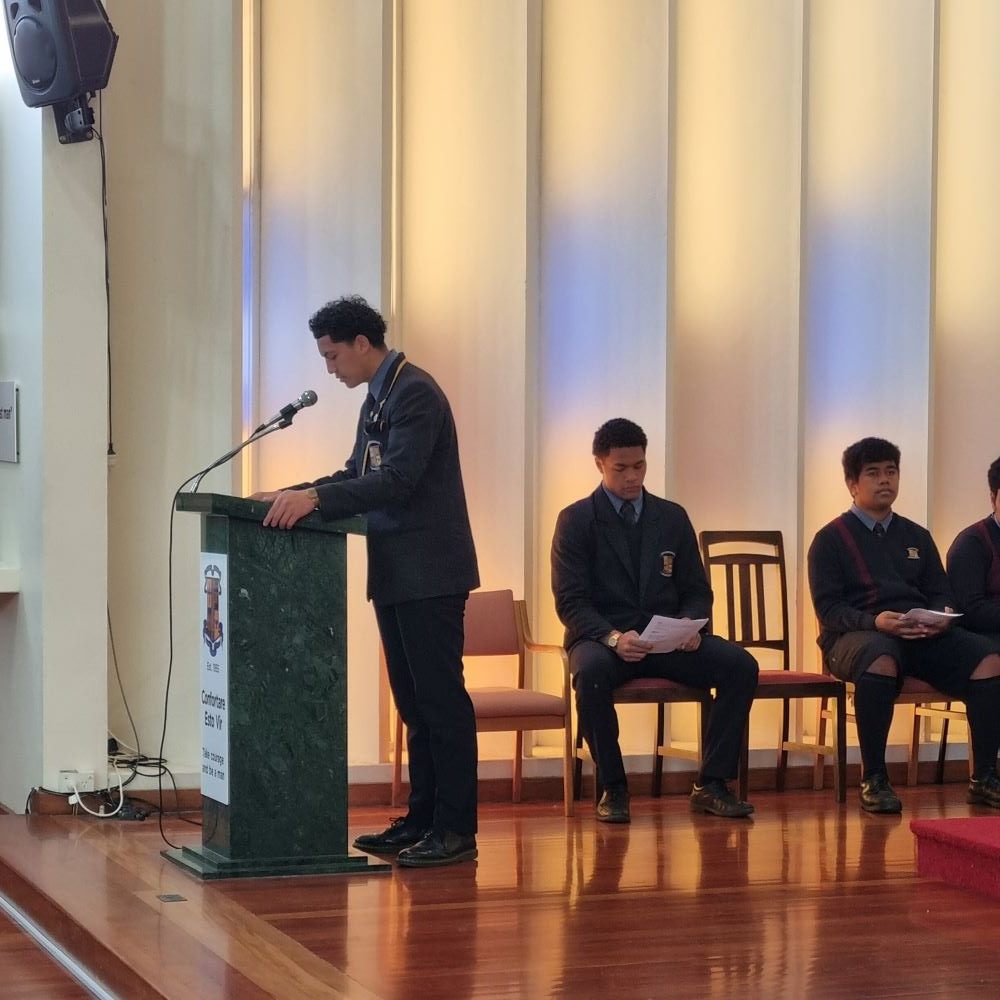 |
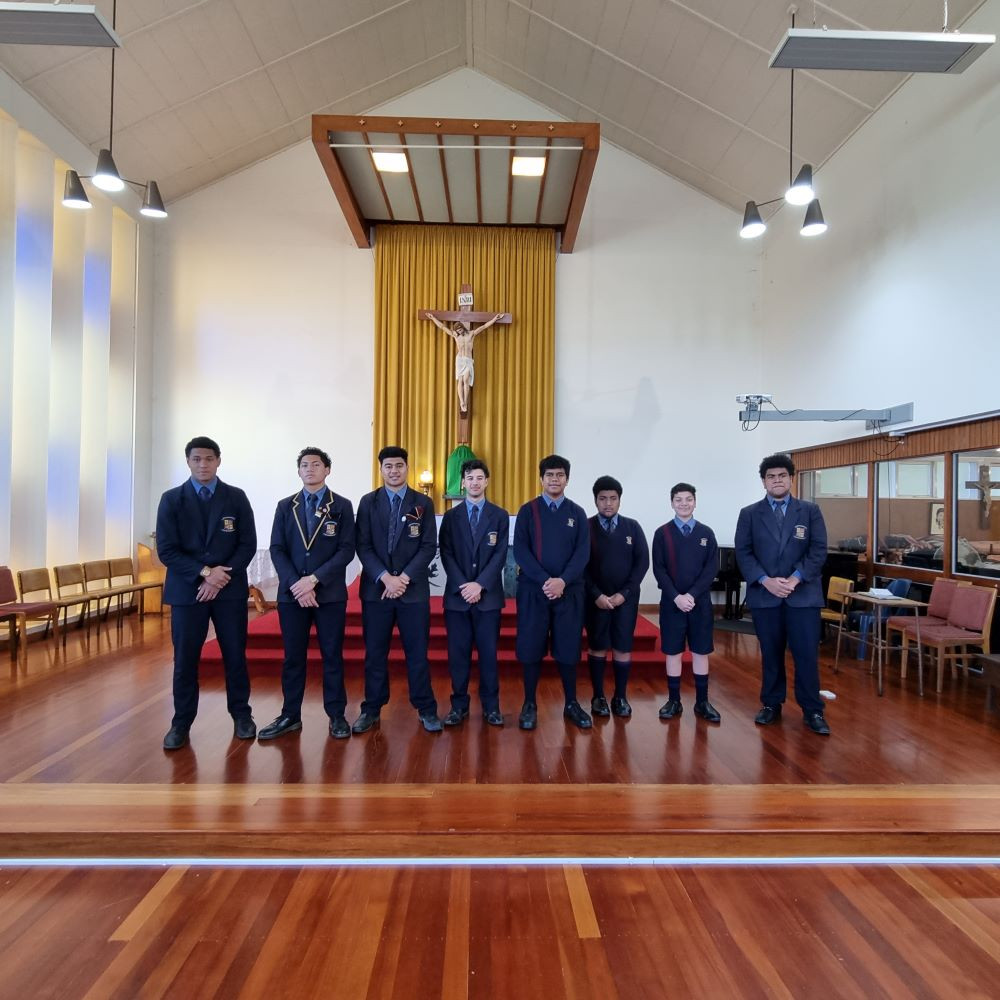 | 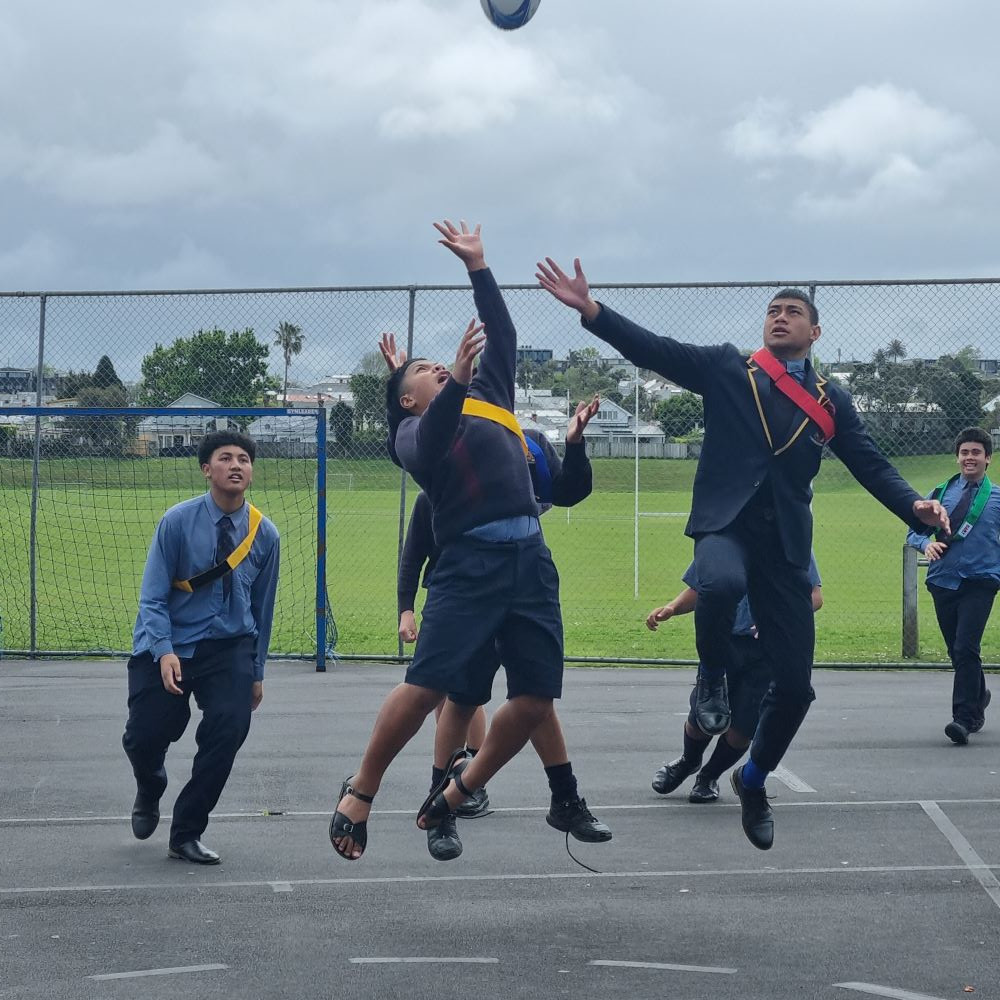 | 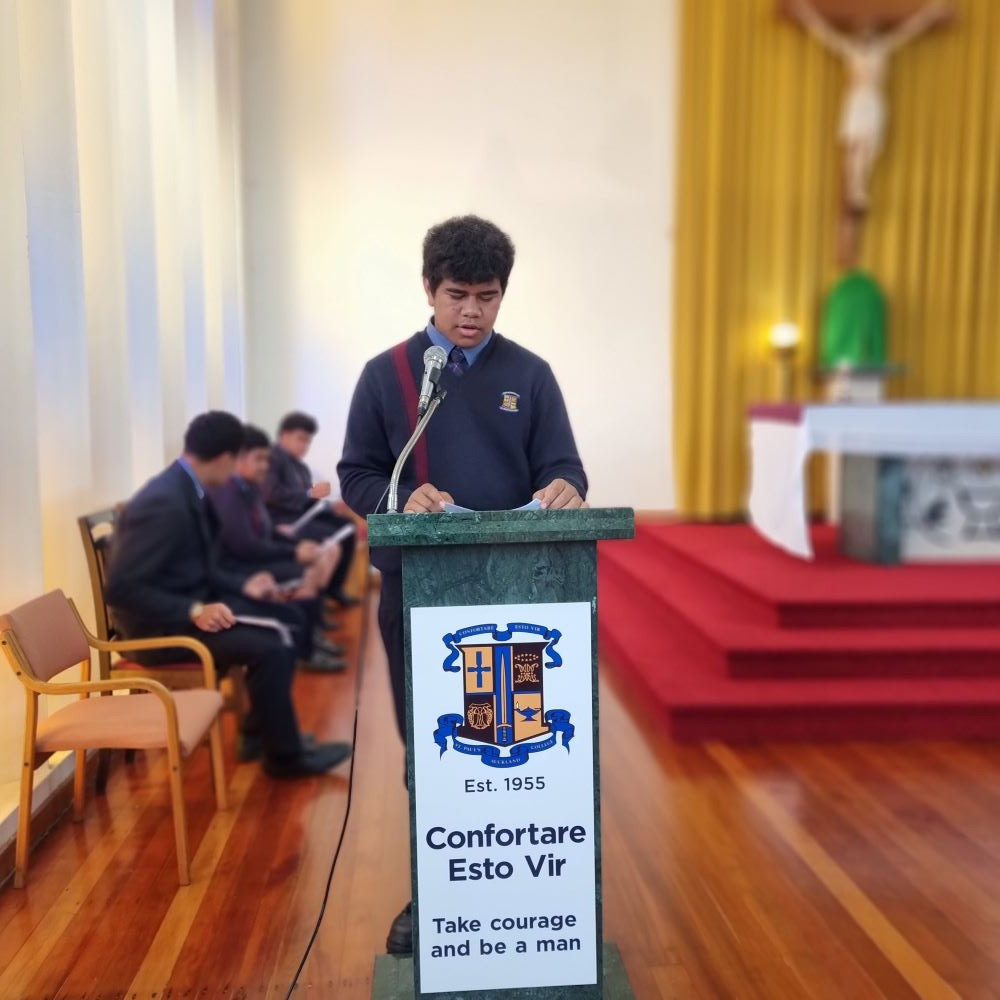 | 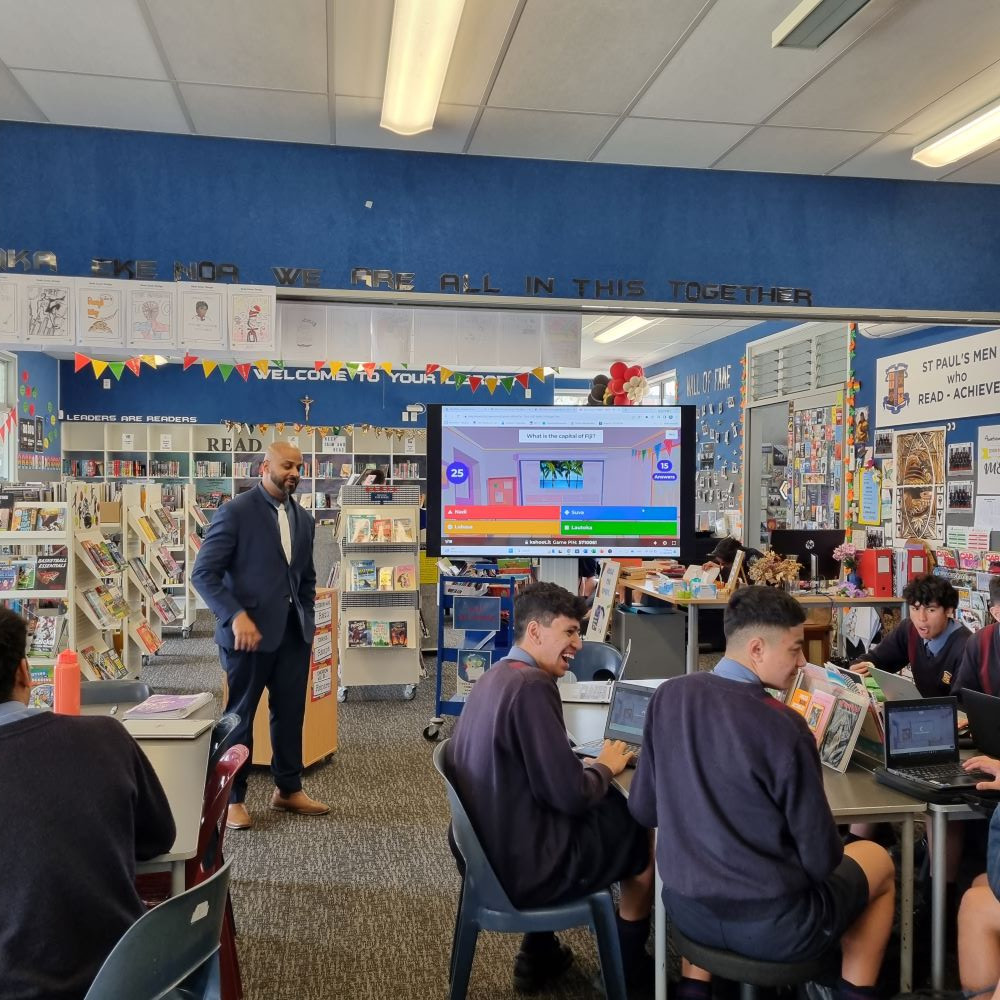 |
Niue Language Week
Fakaalofa lahi atu. In week 2, we celebrated Niue Language Week. Our junior students visited two primary schools in our Kāhui Ako; St Francis Primary and Marist Herne Bay to share their Niuean culture and language. They led the students in games, teaching phrases, a song and haka.
Throughout the week, phrases were taught to the school in assemblies and Gizza Laile, Fletcher Toniu-Williams, Manaia Hetutu-Davis and Jariyus Mauai-Makatuki gave moving and eloquent speeches about their culture and language.
Ms Eniata organised several lunchtime activities including coconut scraping for students and staff to have a go at and organised for a Niuean cultural group 'Atuhau Fuata Mui' (which means the up and coming generation) to visit and perform to our Year 7 and 8 students. It was an amazing performance with our very own Evo Laile playing accompaniment for the group.
We were extremely fortunate to have St Paul's College Old Boy and Niuean boxer Duken Tutakitoa-Williams come in to speak to our Junior students. In the 2022 Commonwealth Games, Duken won Niue's first ever medal. He spoke to the boys about hard work. When you have a goal, no matter what it is, it requires hard work. You can be the most talented person at something but talent alone doesn't get you far. He encouraged our young men to work hard at their goals and to make good choices and to surround themselves with good people because that is what matters. Some great inspiring and motivational messages from Duken. Fakaaue Lahi to all those involved.
Fakamonuinaaga mai he Atua (Blessings from God).
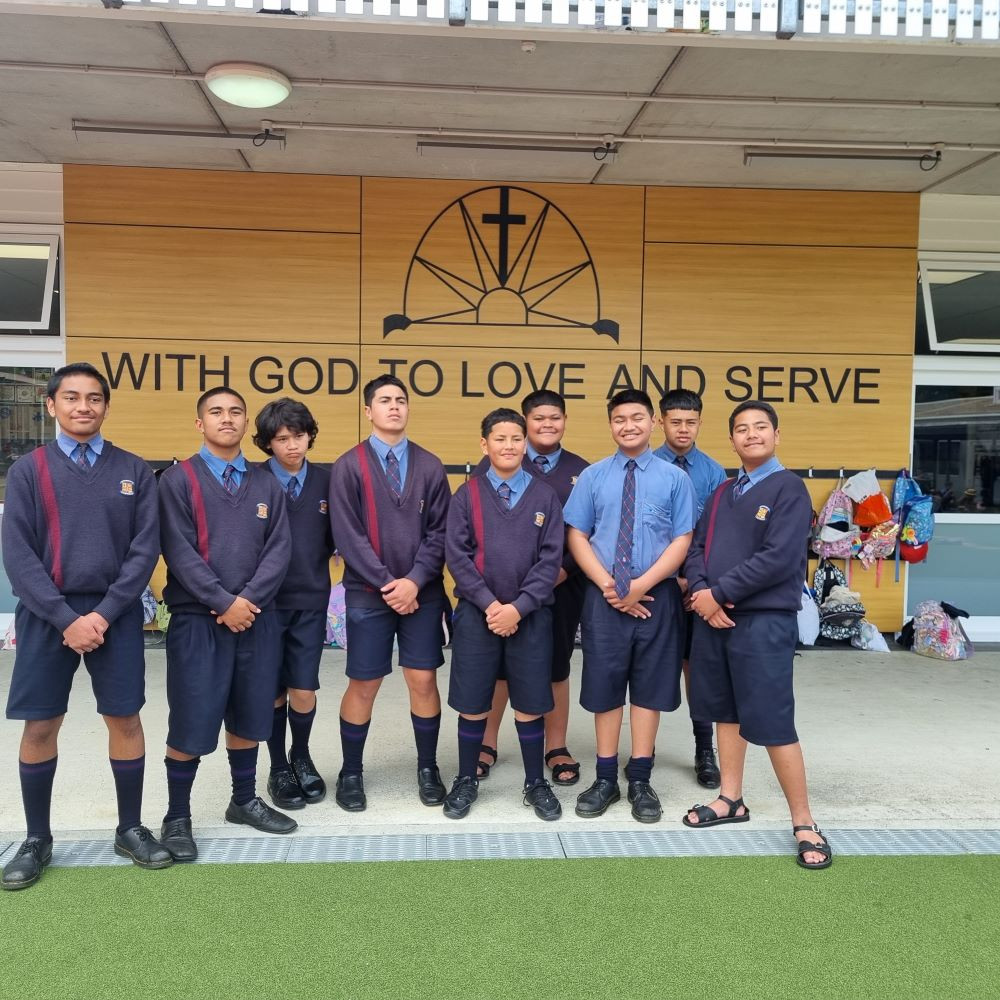 | 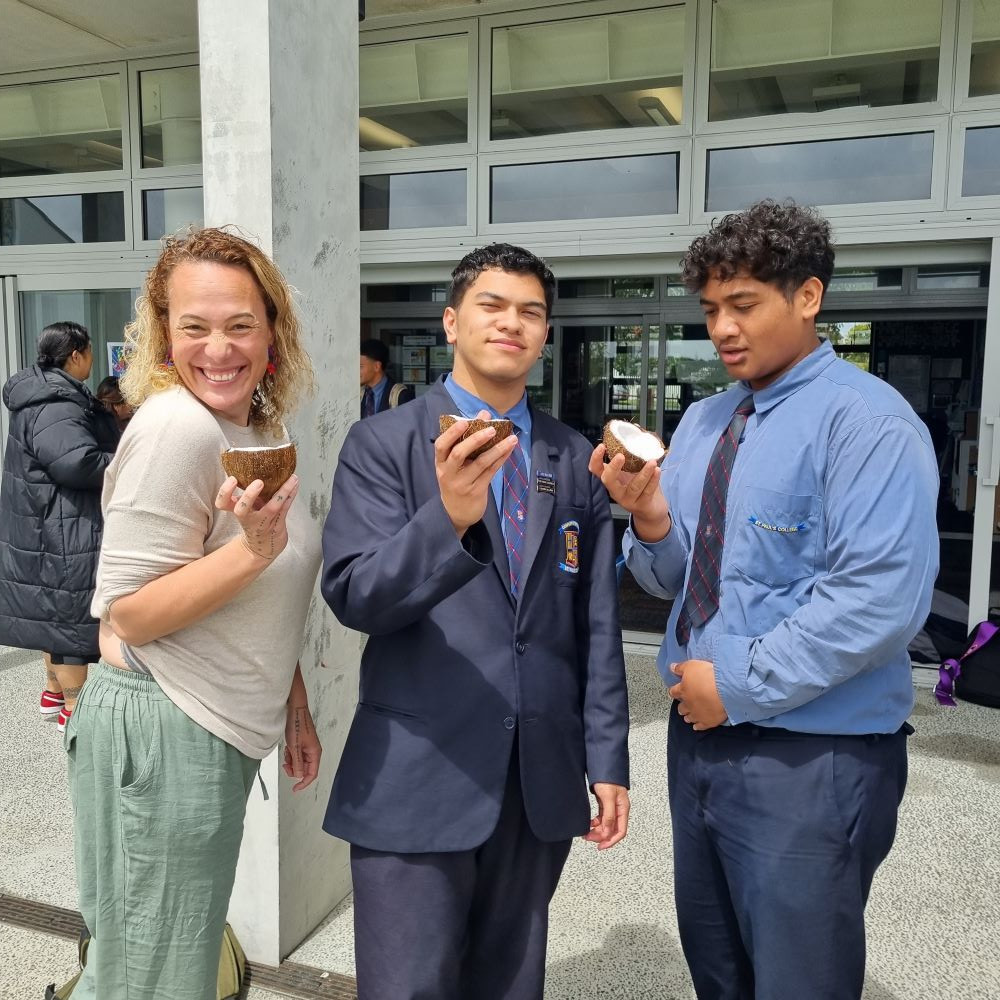 | 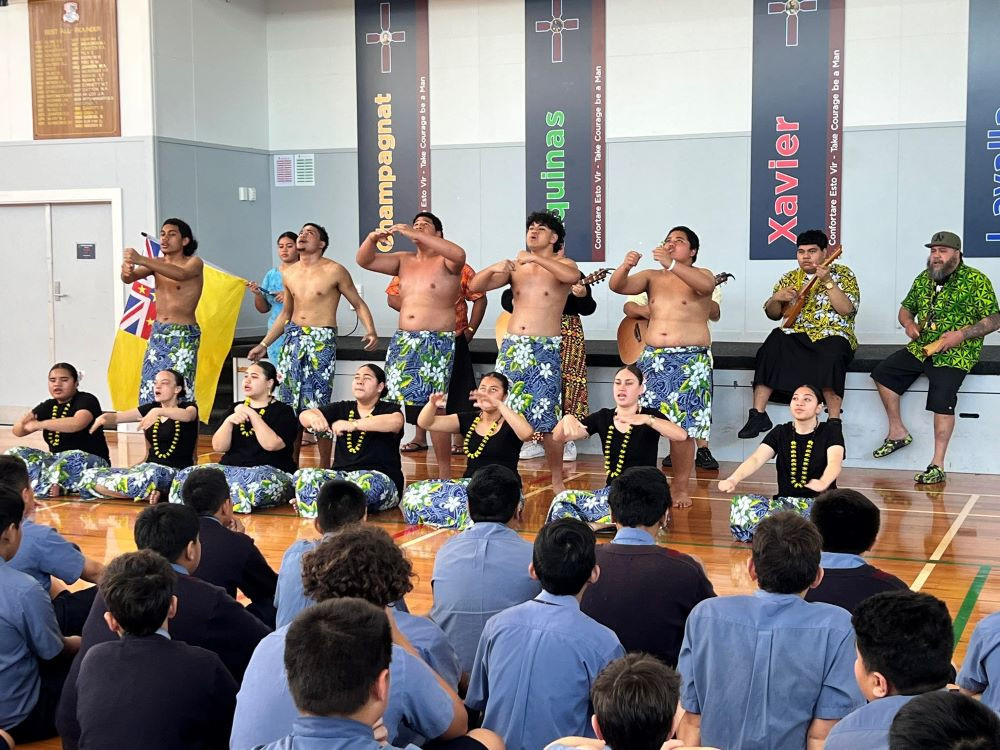 | 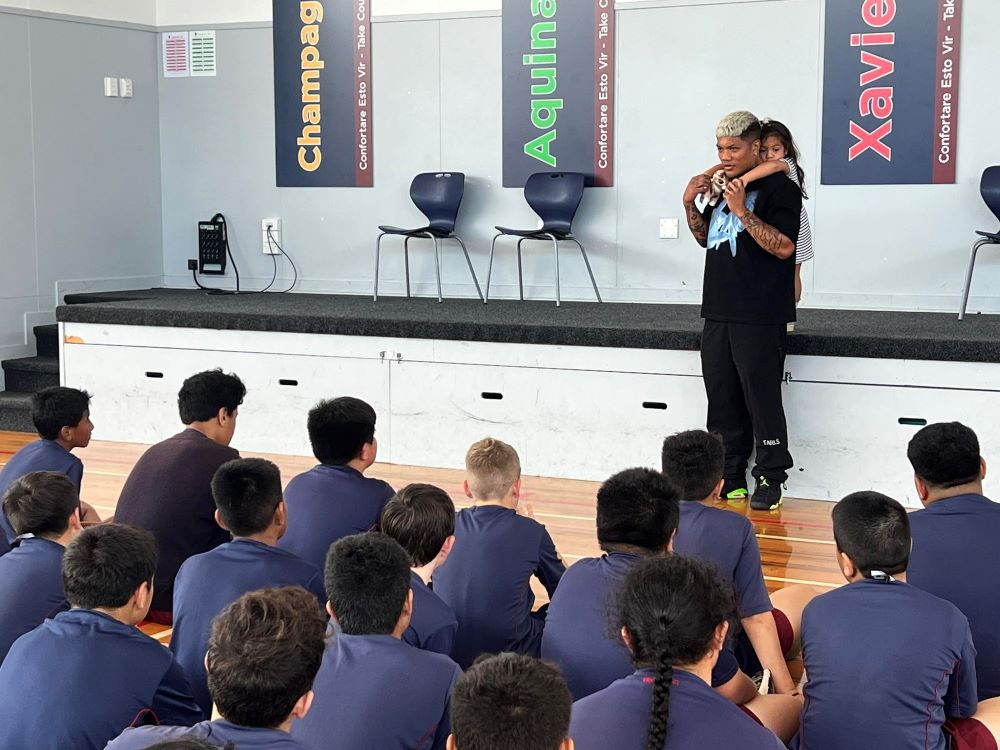 |
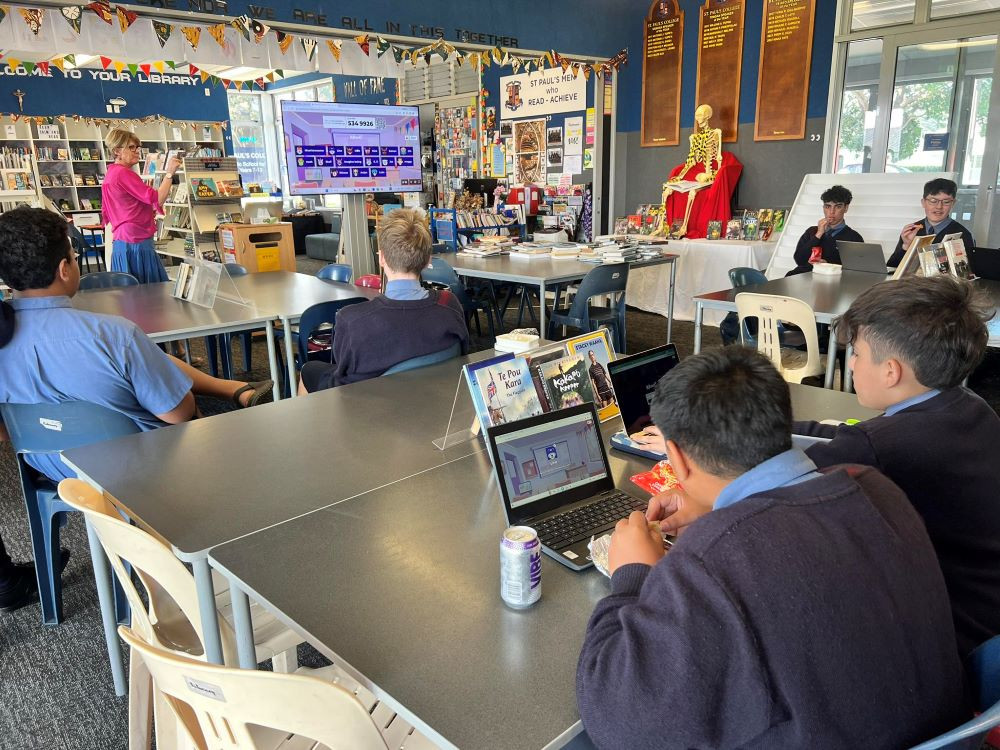 | 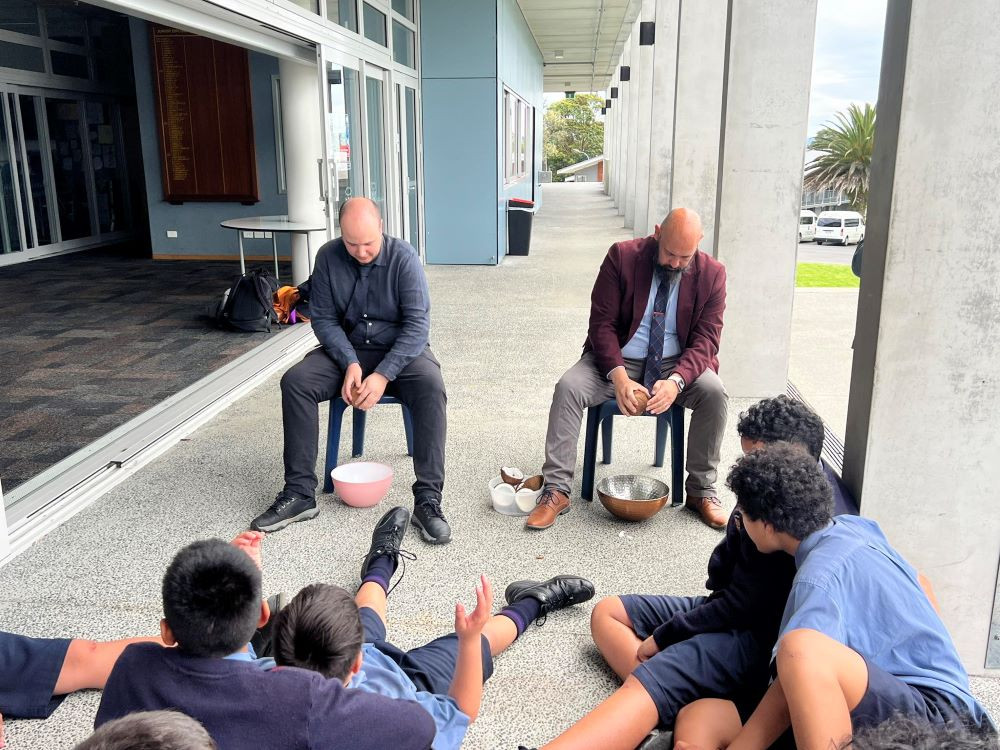 | 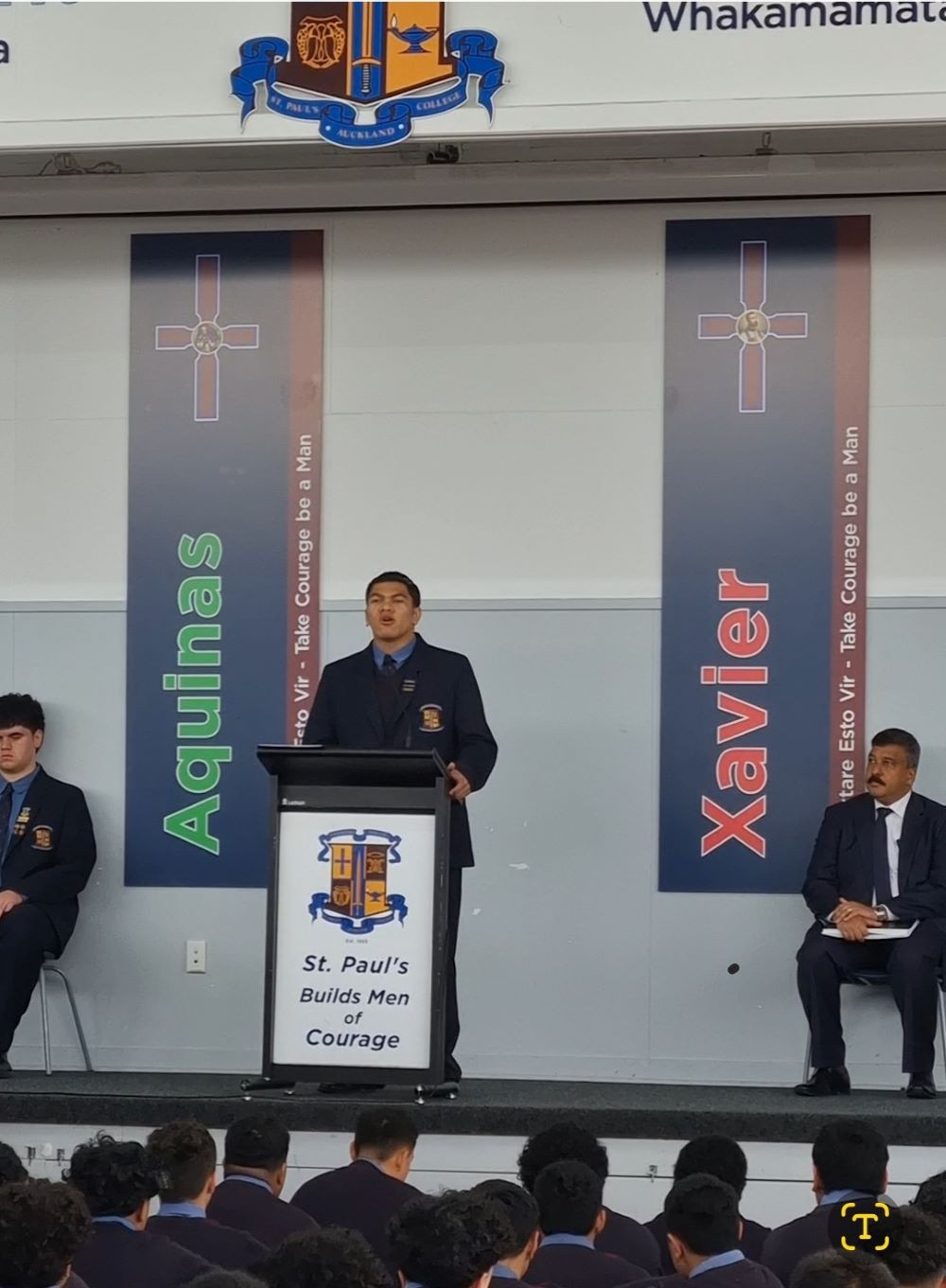 | 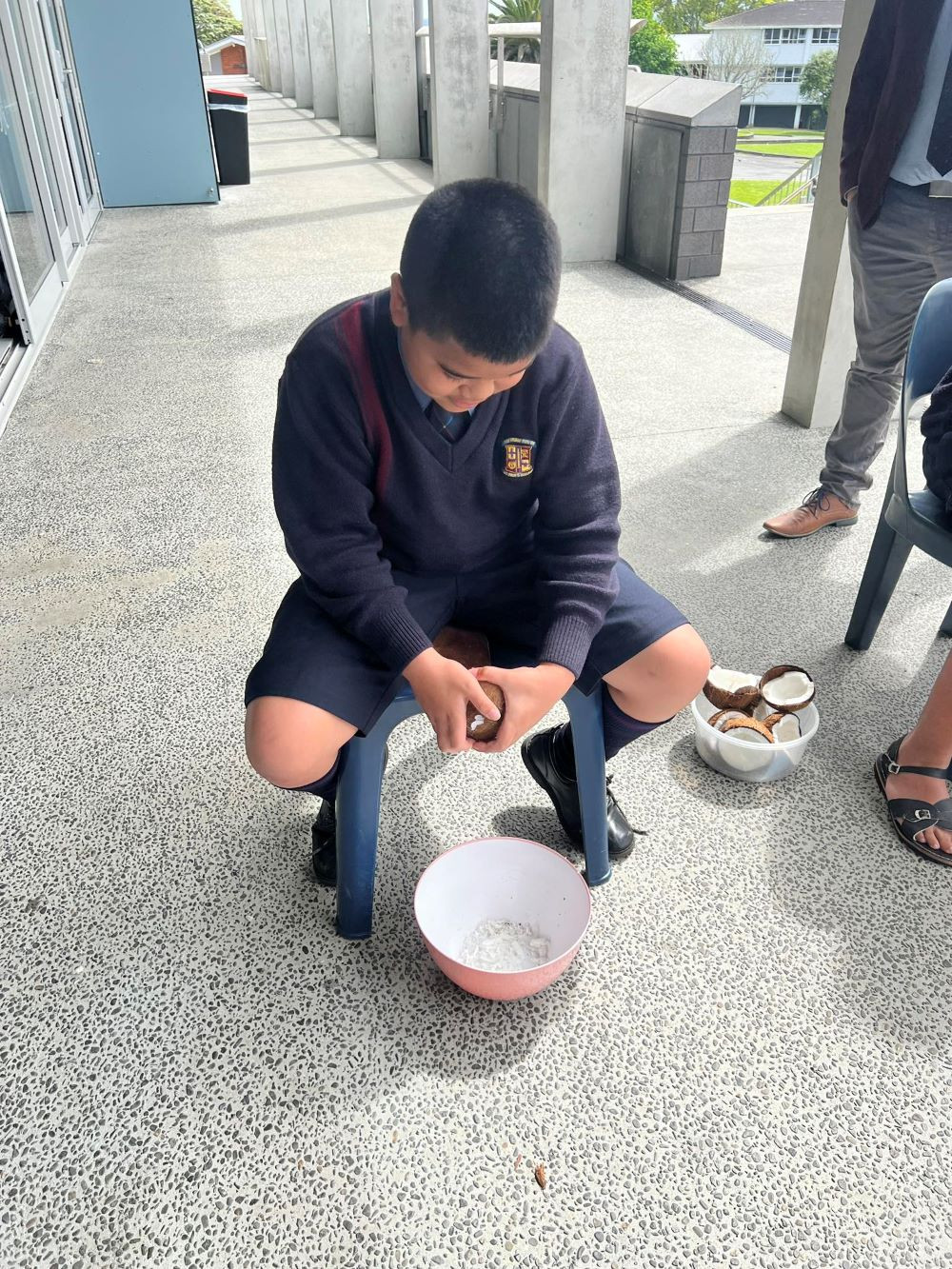 |
Tokelau Language Week
The final language week celebrated was Tokelau Language Week. Zephan Pita-Lafaele, Christian Faumuina and Leaam Kelemete spoke passionately in assemblies about their culture and the pride of being Tokelauan and the importance of sustaining the language. Our senior boys and River Kelly Leilua in Year 7 also delivered phrases in Tokelau for students and staff to learn in assemblies. We held our Kahoot! quiz to learn more about Tokelau and the senior boys organised some Kilikiti at lunchtime for students to try out. Zephan Pita-Lafaele was also part of a performance group at the Auckland Commemoration for Tokelauan Language Week. Fakafetai to everyone involved.
Ke manuia koe i te Alofa o te Atua (may you be blessed in God's love).
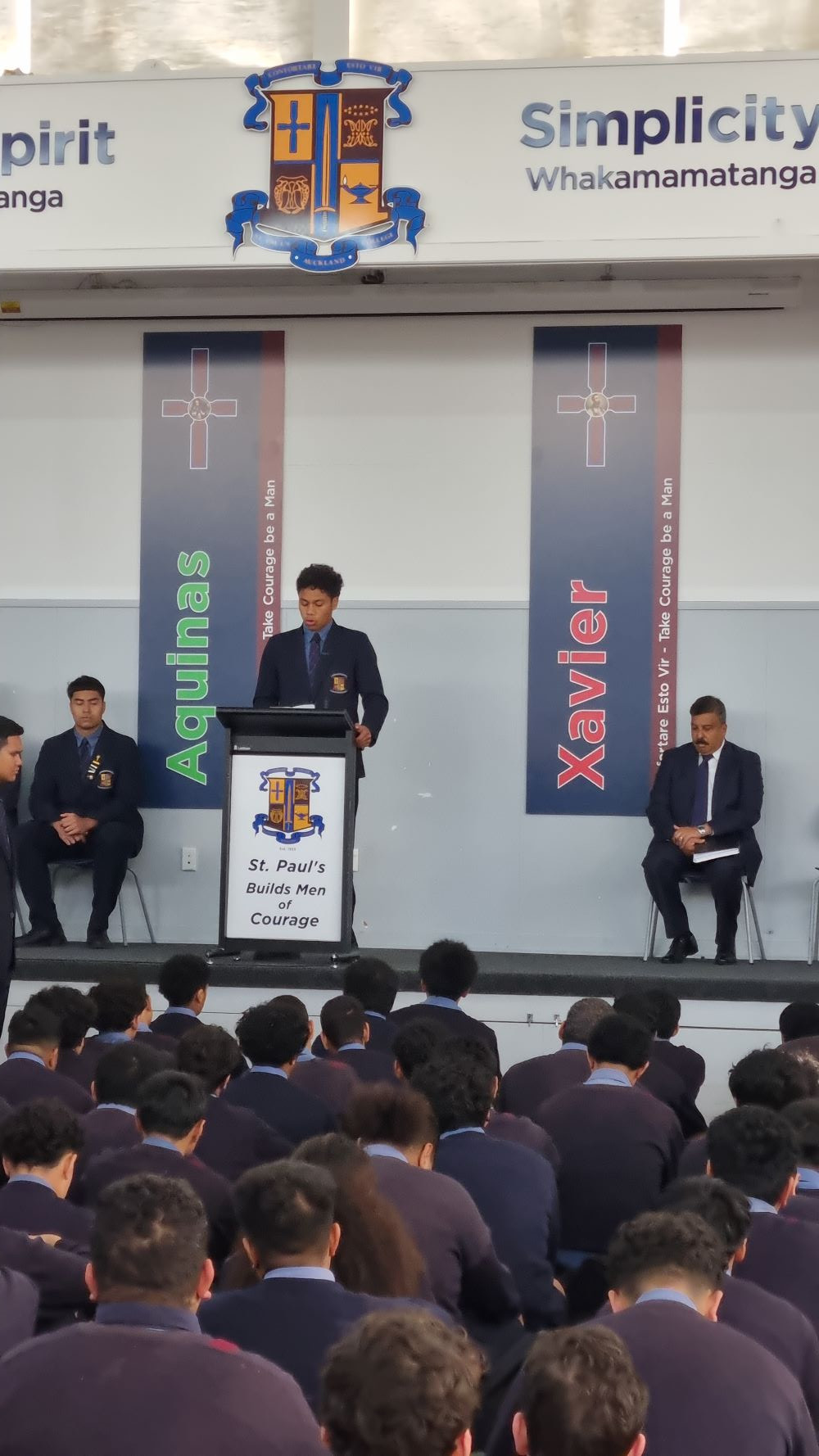 | 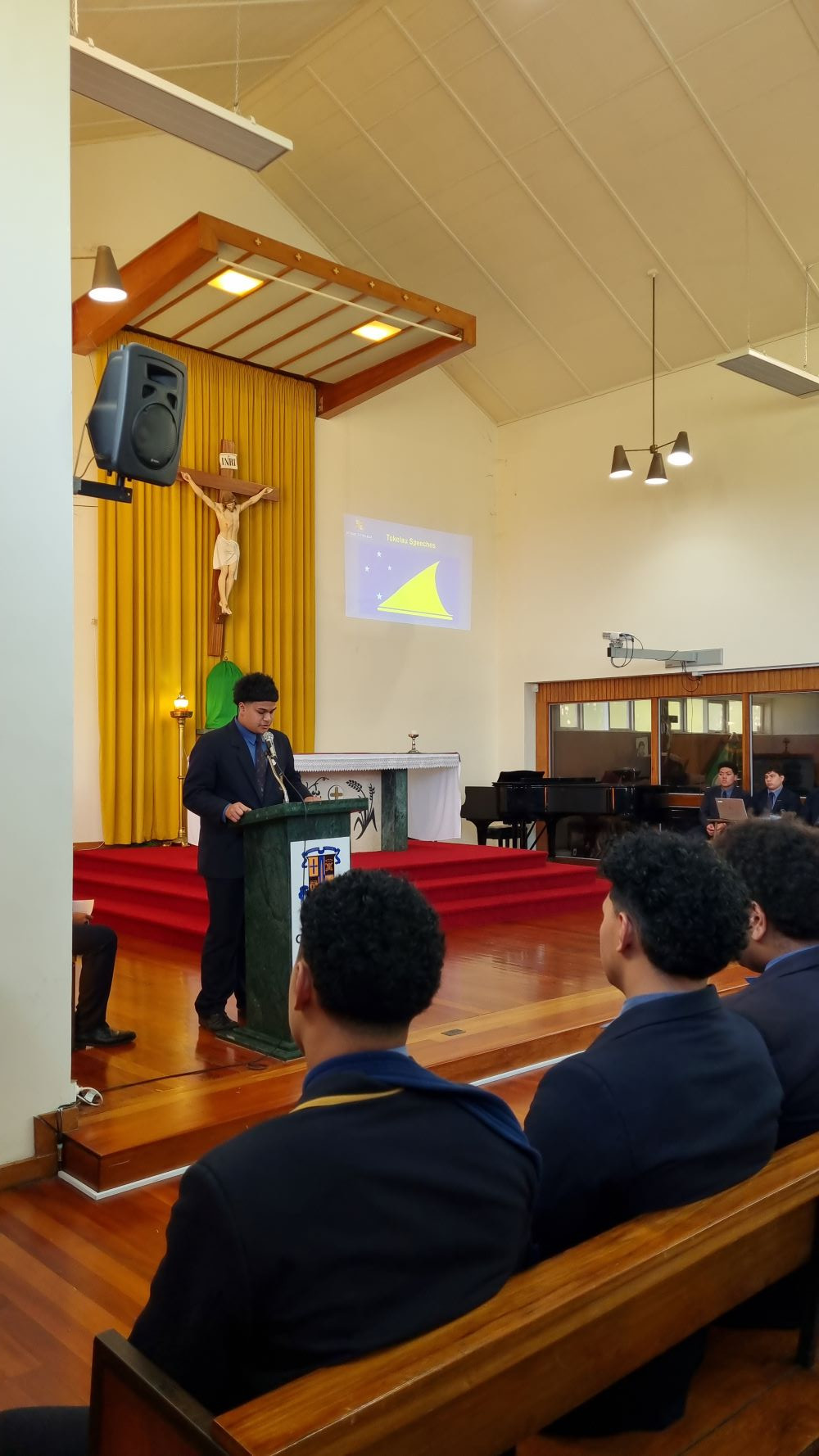 | 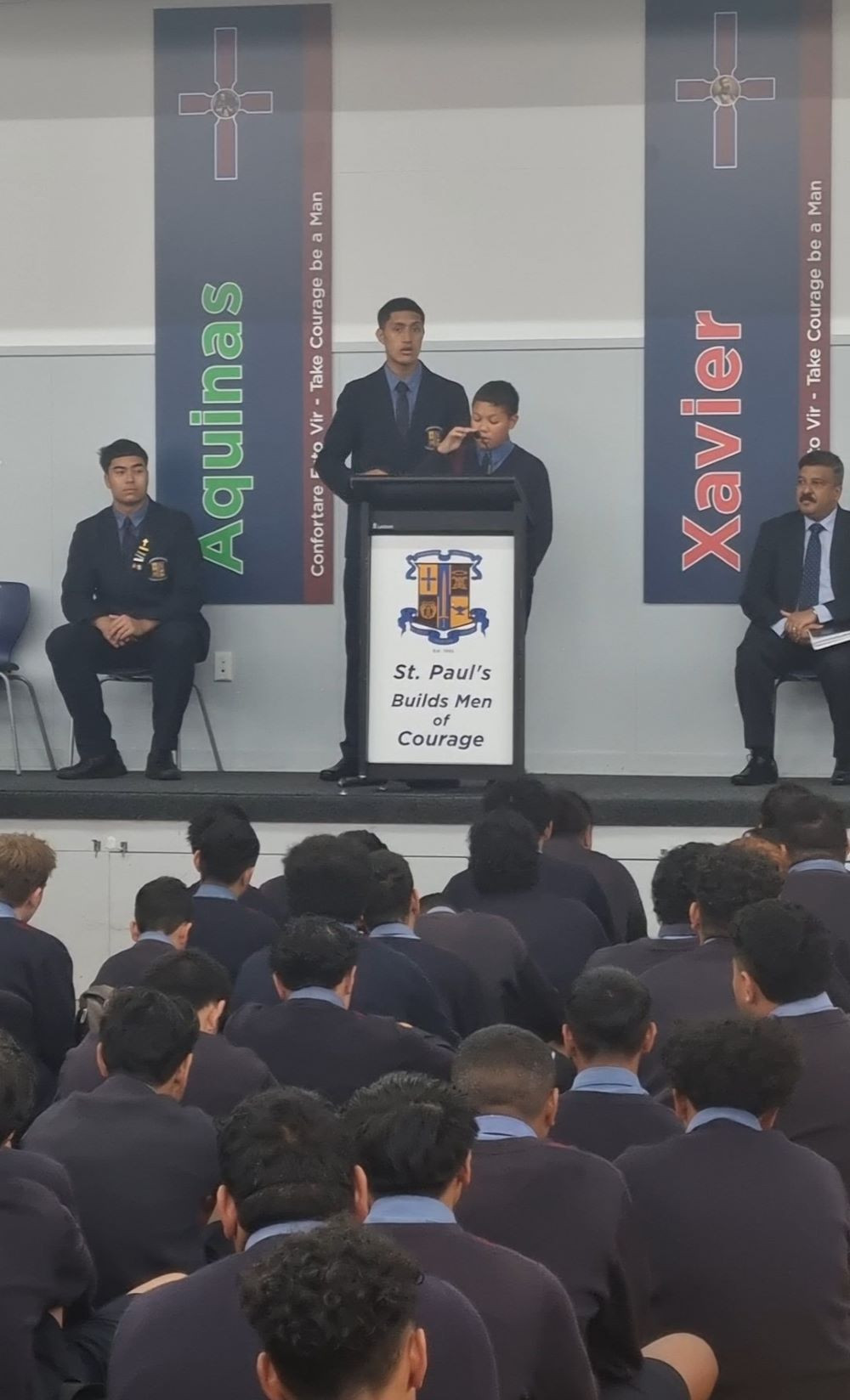 |
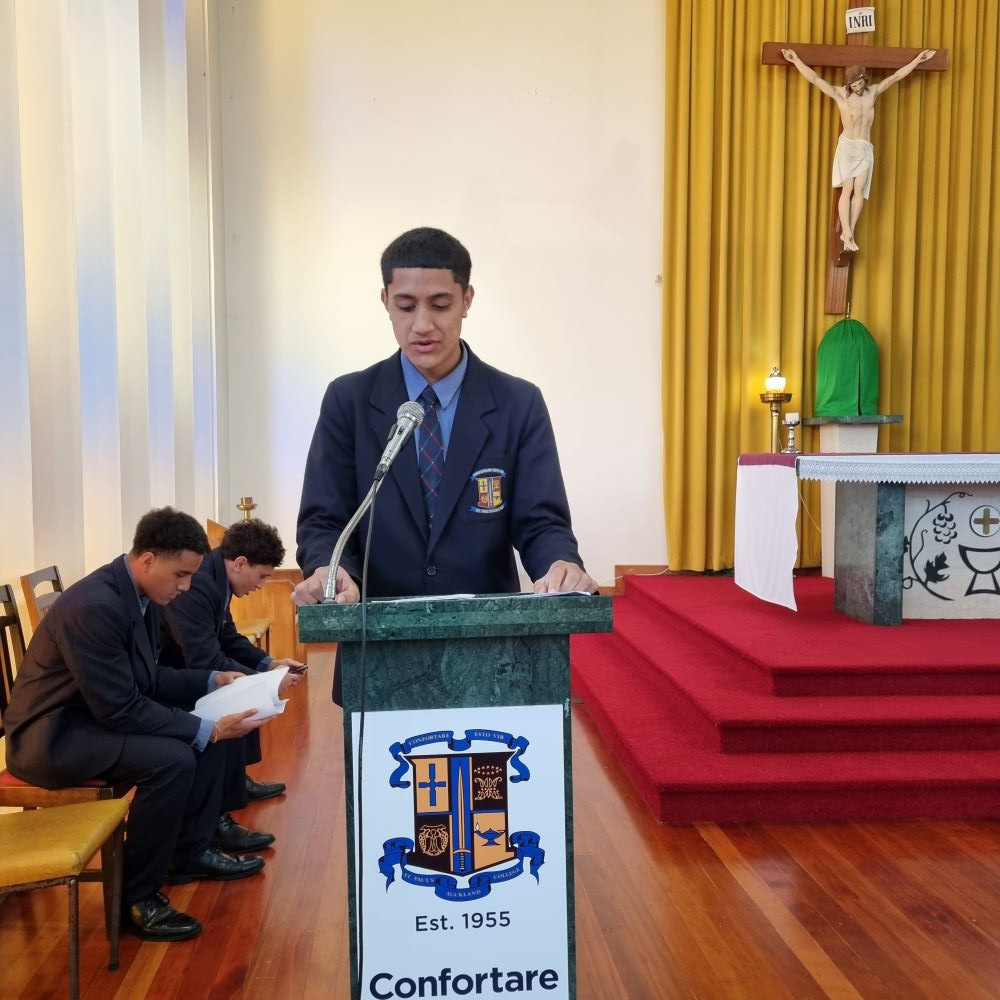 | 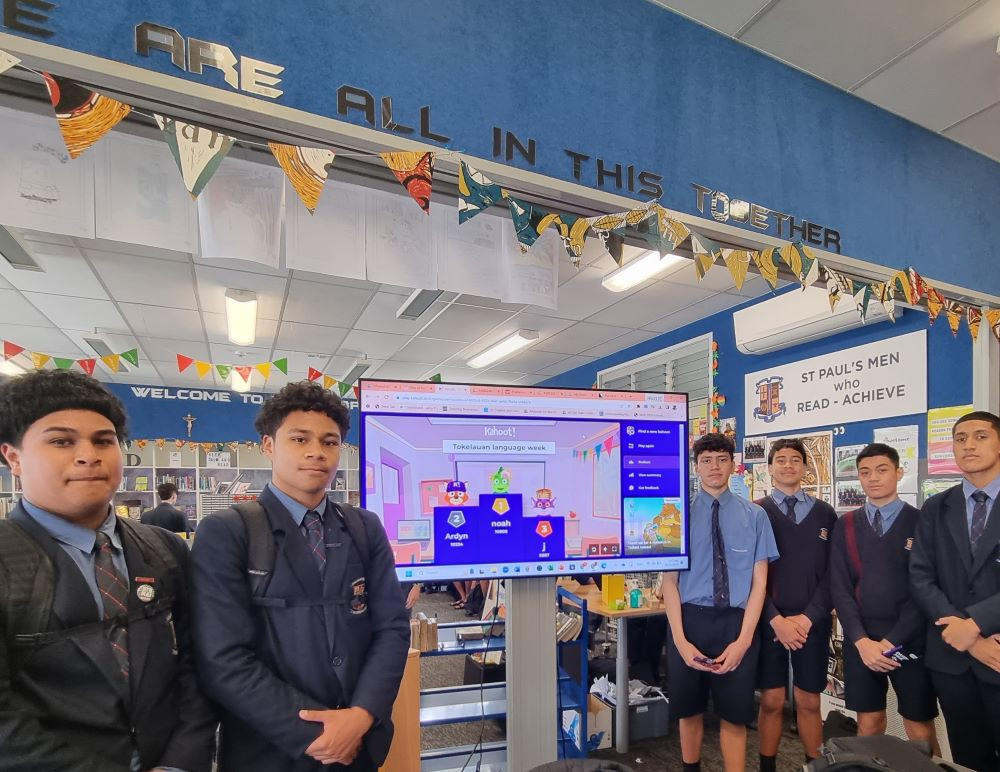 |  |
Speech by Zephan Pita-Lafaele
Malo ni, ko toku igoa ko Zephan Pita-Lafaele. Ko te vaiaho tenei ko te Gagana Tokelau. E ta ua aua e fakamanatu ai te aganuku, gagana Tokelau ma na tu faka Tokelau. Ko te hini kau tu o te Vaiaho o te Gagana Tokelau, “Ke olatia ko ia Tokelau i tana Fakavae” Tokelau to prosper within its Foundation. Ko te uiga moni, ke olatia ma taupau pea te gagana Tokelau, ke tumau pea te fakaaloalo ki na tino matutua, alofa ma fakamakeke ki te Lotu.
The theme for Tokelau language week this year is - “Ke olatia ko ia Tokelau i tana Fakavae”. Which means Tokelau to prosper within its Foundation.
Tokelau is made up of four atolls, Fakaofo, Nukunonu, Atafu and Olohega also known as Swains Island. Tokelau is also a dependent territory of New Zealand. With 8679 Tokelauans living in NZ predominantly residing in Wellington.
Tokelau finds its strength in four foundational pillars: language, culture, customs, and most importantly faith. Culture is important as it is the lifeblood of what we do. Faith is the branch of hope and trust in God. customs are what shape me and language is what i learn through dances, songs and through my elders. My culture is important to me as I acknowledge my grandparents and those who came before me. By acknowledging my roots as well as my ancestors is essential for future progression by learning and speaking my language.
Mahatma Gandhi once said “A nation's culture resides in the hearts and in the soul of its people ''.
Ke manuia te vaiaho o te Gagana Tokelau.
Thank You
